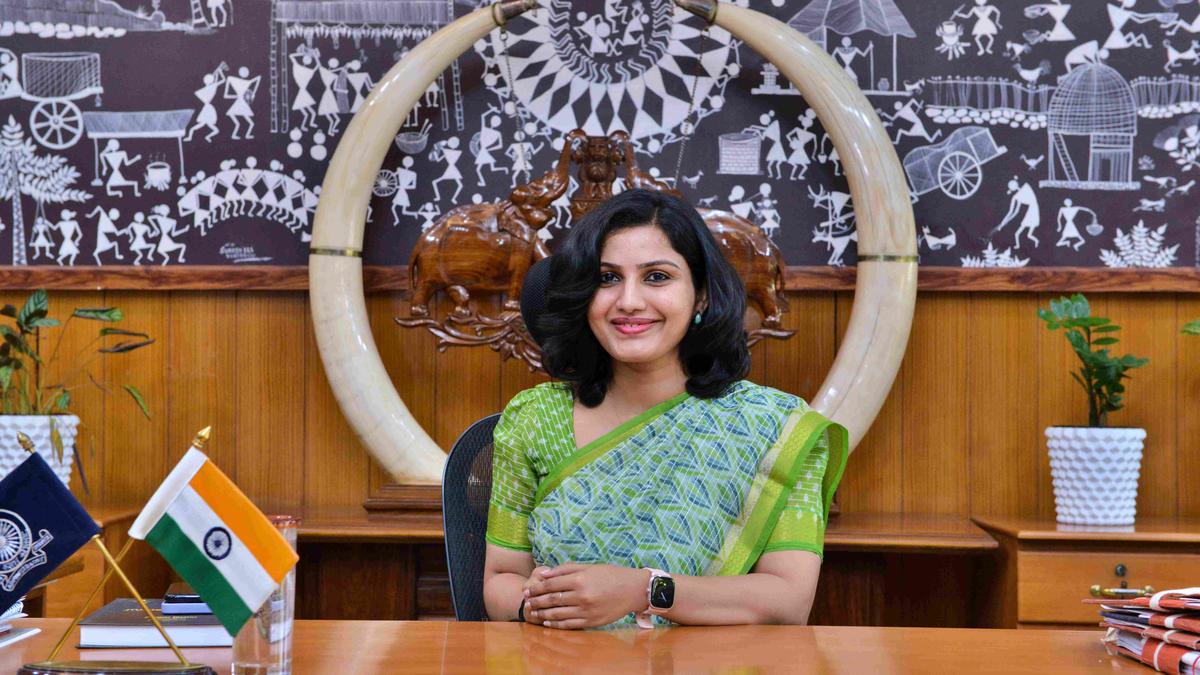
The 2019 deluge was one of the most challenging situations I faced as an administrator, says Renu Raj
The Hindu
Deeply committed IAS officer shares insights on public service, crisis management, and community collaboration in challenging environments.
While the world is celebrating the 47th International Women’s Day on Friday to mark women’s rights and global harmony, Wayanad District Collector Renu Raj opens her mind to The Hindu. Every year, the day is celebrated with a unique theme and this year the theme is ‘Invest in Women: Accelerate Progress’.
Growing up in a family that emphasised the values of public service and community engagement, I was instilled with a deep sense of responsibility towards society. My decision to pursue a career in the Indian Administrative Service (IAS) was further solidified during my years as a medical student. While studying medicine at Government Medical College, Kottayam, I was confronted with the stark realities of healthcare disparities, especially in rural and underprivileged areas.
One of the most challenging situations I faced as an administrator was during the devastating floods of 2019 when I was Sub Collector in Devikulam. The flood wreaked havoc, causing widespread destruction, displacing families, and disrupting lives across the region. As the floodwaters rose and communities faced imminent danger, it became a race against time to coordinate rescue operations, provide immediate relief, and ensure the safety of the affected population. The sheer scale of the disaster was overwhelming, and it demanded quick, effective and coordinated responses from the administration. While the flood tested our limits as administrators, it also brought out the best in us — the spirit of compassion, resilience, and unity in the face of adversity. The experience taught me valuable lessons in crisis management, the importance of swift and decisive action, and the power of community collaboration.
The responsibility of overseeing a district like Wayanad, with its diverse communities and ecological sensitivities, requires a steady and composed approach, particularly when addressing issues such as human-animal conflict. In such situations, I also ensure to filter out unwanted advice or distractions that may divert me from the established course of action. I find that maintaining a healthy work-life balance is essential for managing stress effectively.
Wayanad, like many regions, has pockets of poverty and a lack of access to basic amenities such as healthcare, education, and infrastructure, especially in remote tribal hamlets. To overcome this challenge, we have initiated various programmes aimed at improving healthcare access, enhancing educational opportunities, and promoting livelihood initiatives for marginalised communities. They include various projects channelised through corporate social responsibility by way of the WIFI’23 CSR conclave, a unique initiative from the district. Wayanad is known for its rich biodiversity, but this also brings challenges in balancing conservation efforts with the needs of local communities. To address this, we are planning to implement innovative solutions such as eco-friendly farming practices, promoting ecotourism, and collaborating with the Forest department and wildlife experts to mitigate human-animal conflict.
My advice to these determined individuals is to approach this endeavour with a blend of optimism and realism. The civil services offer a vast platform for young women to make a tangible difference in society, to contribute meaningfully to governance, and to advocate for positive change. However, it is also essential to have a realistic understanding of the challenges that come with this path. For an IAS officer, the road ahead demands courage, dedication, and a steadfast commitment to continuous learning.

The Karnataka government has drafted a comprehensive master plan for the integrated development of Kukke Subrahmanya temple, the State’s highest revenue-generating temple managed by the Hindu Religious Institutions and Charitable Endowments Department. The redevelopment initiative is estimated to cost around ₹254 crore and aims to enhance infrastructure and facilities for devotees.












